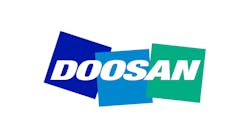While an overall view of U. S. manufacturing shows a base that is proving to be resilient in the face of higher interest rates and weakening consumer spending, Fred H. Fishman, manager of strategic procurement programs for TechSolve, Inc., says he sees manufacturers, especially the smaller companies that produce components and parts that they supply to larger customers increasingly being squeezed for profit. Many of those smaller companies are metalworking shops.
"What had been a relatively quiet and uninteresting economy for a number of years suddenly got hotter. Oil prices gushed, metals glowed hotter, and everyone supplying anything and everything to manufacturers suddenly saw the opportunity to jump on the price-increase bandwagon," Fishman says. Fishman's company is a Cincinnati-based consulting firm (www.techsolve.org) that specializes in continuous improvement, lean and Six Sigma programs, among other process-enhancing methods.
"Whether you attribute it to supply and demand theory at work, the gluttonous materials consumption of anything and everything by China, unstable and threatening political events, producer strikes in various parts of the world, price manipulation, or just plain greed, dramatic price increases have led manufacturing into a new and more complex phase of business," he says.
Prices for metals are hovering at near-record levels, prices for energy are high, and prices for other products are increasing, yet there is "unyielding pressure of customers' resistance to price increases in what they sell."
"Profitability is the name of the new game. While selling more is important, profitability is the critical element. The old business tale of making up for little or no profit with increased volume has long since vanished," Fishman says.
Fishman sees companies increasingly turning to value engineering programs to eliminate the inefficiencies that have made their products and processes unnecessarily complex and expensive.
"Key words for profitability in the new millennium include lean, agile, quick, pull, short, straight, clear, simple, clean, at-hand, velocity, and value-added. Ironically, words that once defined business dominance and success, such as 'know-how', inventory, capital-intensity, are today's kiss of death," Fishman says.
